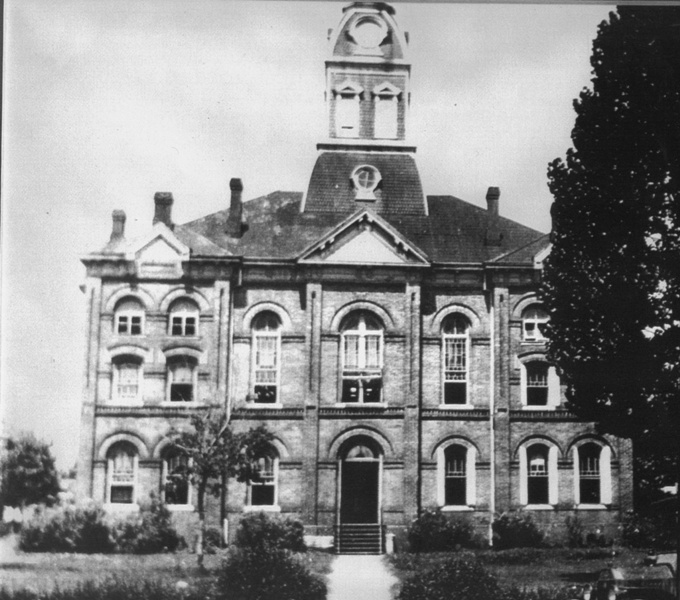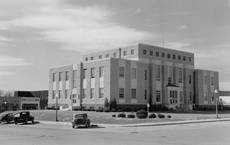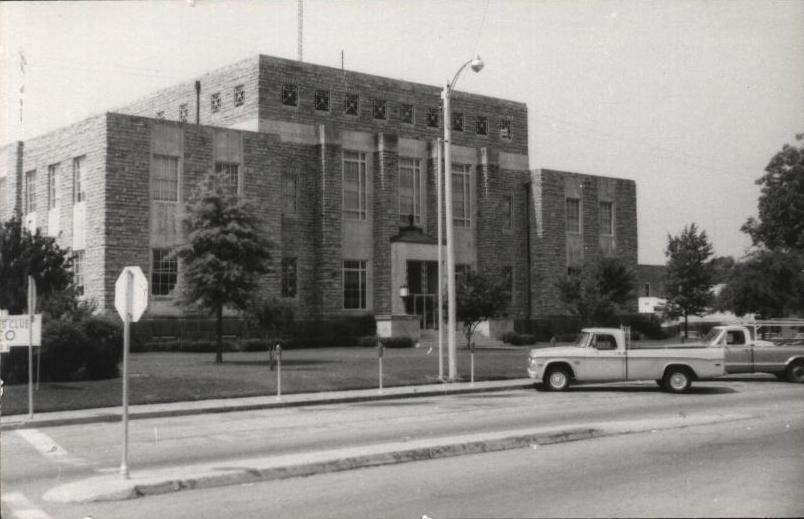Cherokee County, Texas
Courthouse History
![]()

Photo Courtesy of the Heritage Center of Cherokee County

Confederate
Veterans on the lawn of the 1889 County Courthouse
Photo Courtesy Arcadia Publishing and The Cherokee County Historical
Commission


The 1941 Cherokee County Courthouse, photo courtesy of TXDoT Photo courtesy of texasoldphotos.com
Rusk is the county seat of Cherokee County. It is at the junction of U.S. highways 69 and 84, State Highway 110. The town was established April 11, 1846. It was named for Gen. Thomas Jefferson Rusk, one of the signers of the Texas Declaration of Independence. He is said to have held more official positions than anyone else during the days of The Texas Republic. He practiced law in Cherokee County from 1829 to 1856. John Kilgore and his family were the first to live in Rusk, by 1850 Rusk reportedly had 355 residents. The first post office was authorized on March 8, 1847, and the town's first church, the Cumberland Presbyterian Church, was organized by Rev. J. B. Harris in May 2, 1847. The county court originally met in a crude log dogtrot cabin, but in August 1847 a contract was let for a two-room frame building with brick chimneys. The town's first jail was built the same year, and a larger frame courthouse was erected in 1849. A larger jail was built in 1855, and a brick building to house the county and district clerk's offices was constructed on the northeast corner of the square in 1859; the latter structure stood until it was razed in 1941. Most of the town's early businesses were clustered around the courthouse square. The Cherokee County courthouse was constructed of locally cut stone in Contemporary design. Cornell G. Curtis was the architect and it was built in 1941 for $100,000.
Courthouse Markers Historical Marker Governor's Award Peace Officer Memorial Veterans Memorial
BIBLIOGRAPHY: Hankbook of Texas, Cherokee County History (Jacksonville, Texas: Cherokee County Historical Commission, 1986). Hattie Joplin Roach, A History of Cherokee County (Dallas: Southwest, 1934). Marker Files, Texas Historical Commission, Austin.